Previously on Guitarz we've taken an all-too brief look at a vintage 1960s Musicraft Inc. Messenger guitar (as famously played by Mark Farner of Grand Funk Railroad) and the more recent Eastwood reissue (which is itself a discontinued model... for the time being).
I've not previously seen a bass model of the Messenger, but this is what we have here now being offered for sale on eBay with a starting bid of US $1,500. The bass is a hollowbody and features an aluminium neck.
Intriguingly the neck is fretless (obviously with markers in this instance). The seller does not mention if its fretlessness is an original feature or whether this is a later conversion. In all other areas the bass does seem to be original - it even has the original hardcase.
It would be interesting if, like the Ampeg AUB-1, this was another pre-Jaco Pastorius fretless bass. Jaco famously claimed to have invented the fretless bass, but then again when you are a genius I think you are allowed to make such claims. He certainly invented that whole style of playing. Just look at the flatwound strings on this Messenger in the headstock photo. NOT good for lyrical playing with vibrato, swoops and slides. The best this is going to do is to emulate an upright bass thump.
The eBay seller also provides a few scans of Messenger brochures and sales literature from back in the day, and which I reproduce here for posterity.
If you wondered about that body design:
The perfectly contoured, arrow-straight neck remains thin and fast throughout its entire length. And the fingerboard begins where the soundbox ends, thereby eliminating the need for unsightly cutaways and making possible unobstructed access to all frets.Regarding that metal neck:
Guaranteed not to bow or warp under normal usage, Messenger's rigid, patented alloy neck grows even stronger with age. Because of its strength, no truss rod is needed. Moreover, the neck requires neither a massive buildup at the heel nor a body support. Backbone of the Messenger is a single-piece alloy structure combining the head, neck and a "fork" extension passing through the sound chamber. The extension is tuned to a frequency of 440 cycles per second. Its constant response controls the tonal quality, reduces "?????" [sorry, can't decipher this word] to an absolute minimum and helps keep strings in motion to produce longer sustained notes.
The price list lists Messenger bass models as follows:
MESSENGER BASS GUITARNote that no mention is made of a fretless model.
Features: Dual pick-ups with separate tone and volume controls for maximum tone range and versatility. Semi-acoustic body with short scale neck. Available with the Messer tone distortion unit built in the body.
MB50 Morning Sunburst 325.00
MB52 Rojo Red 325.00
MBS60 Morning Sunburst with messer distortion unit 362.00
MBS62 Rojo Red with messer distortion unit 362.00
G L Wilson
© 2015, Guitarz - The Original Guitar Blog - the blog that goes all the way to 11!
Please read our photo and content policy.

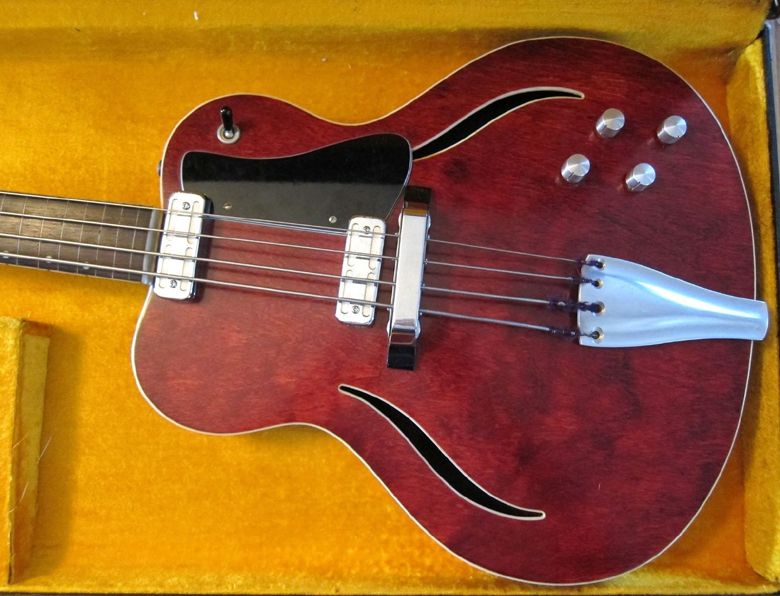
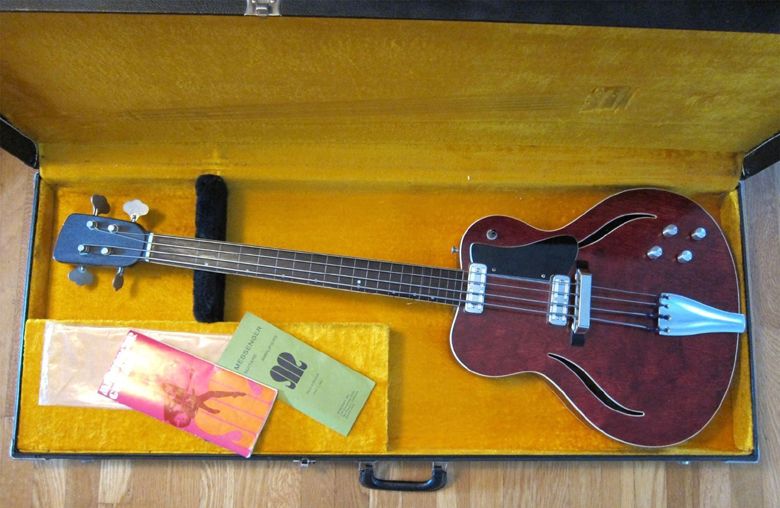
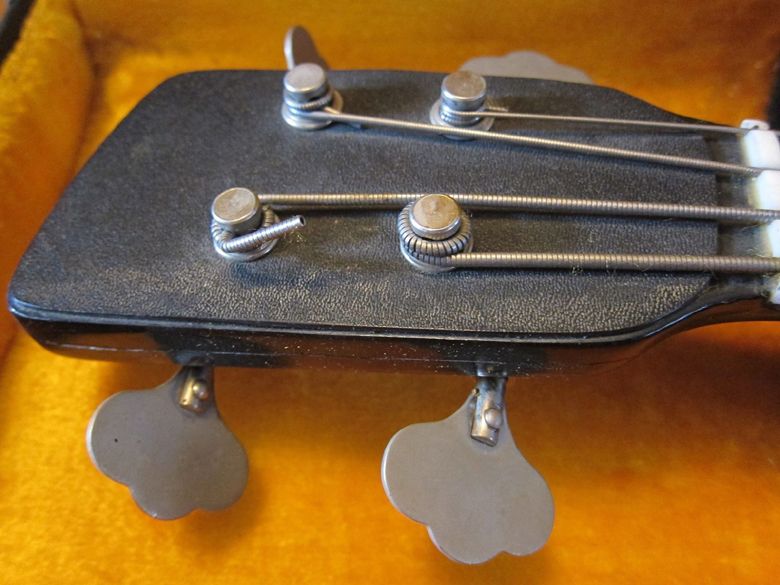
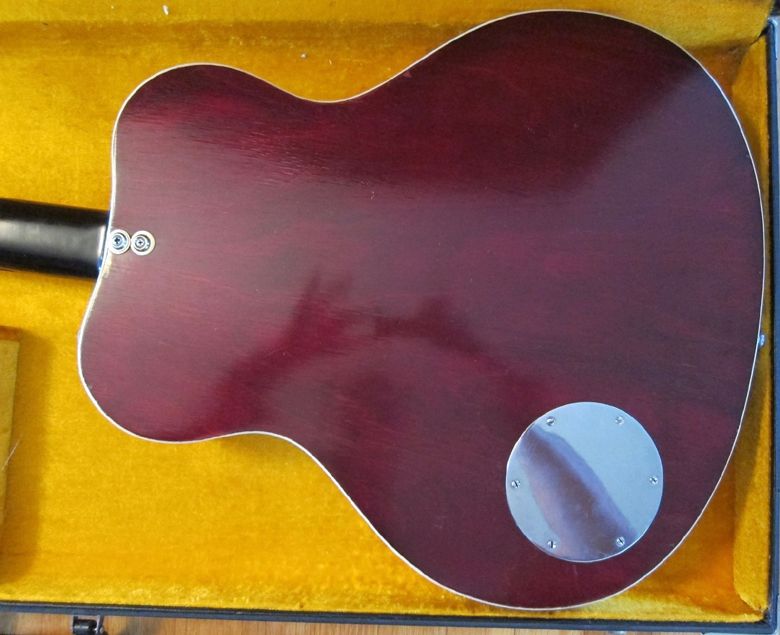
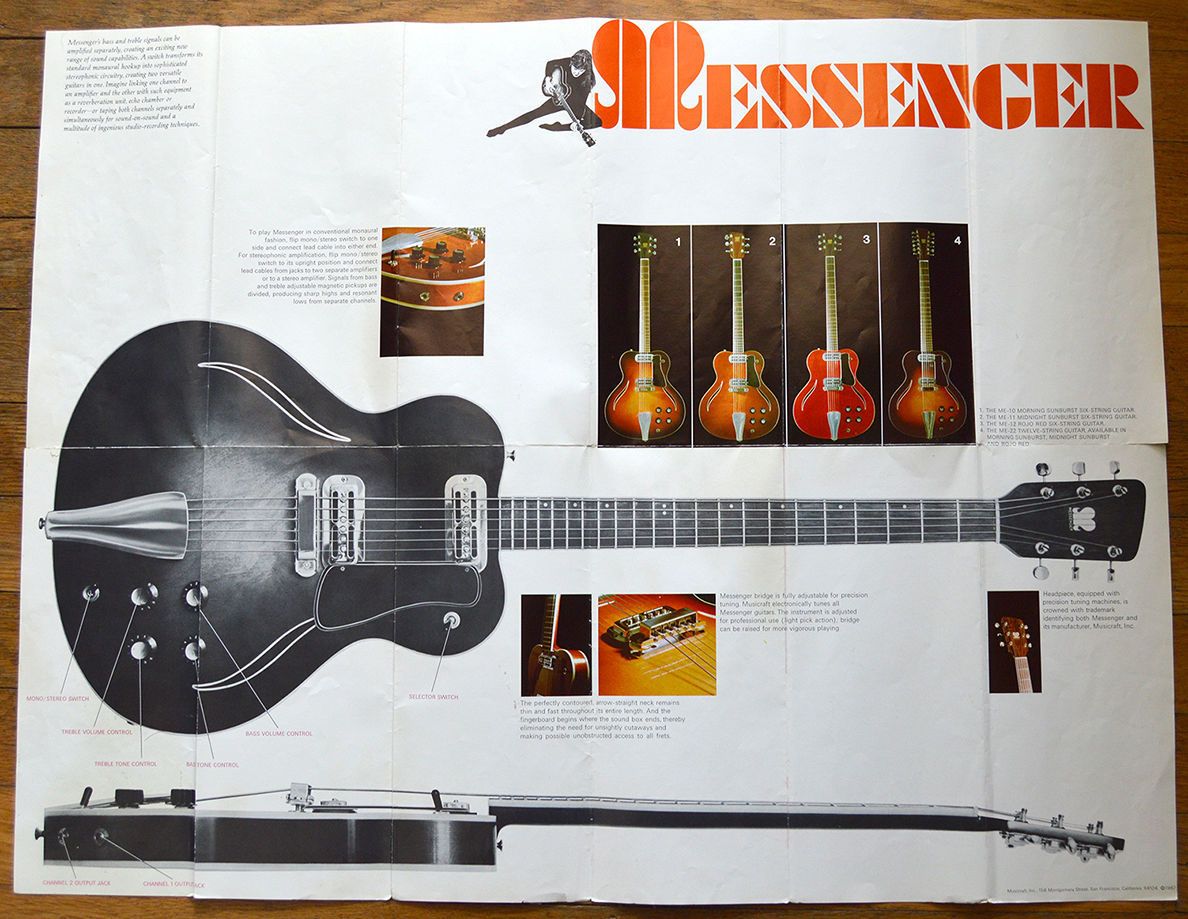
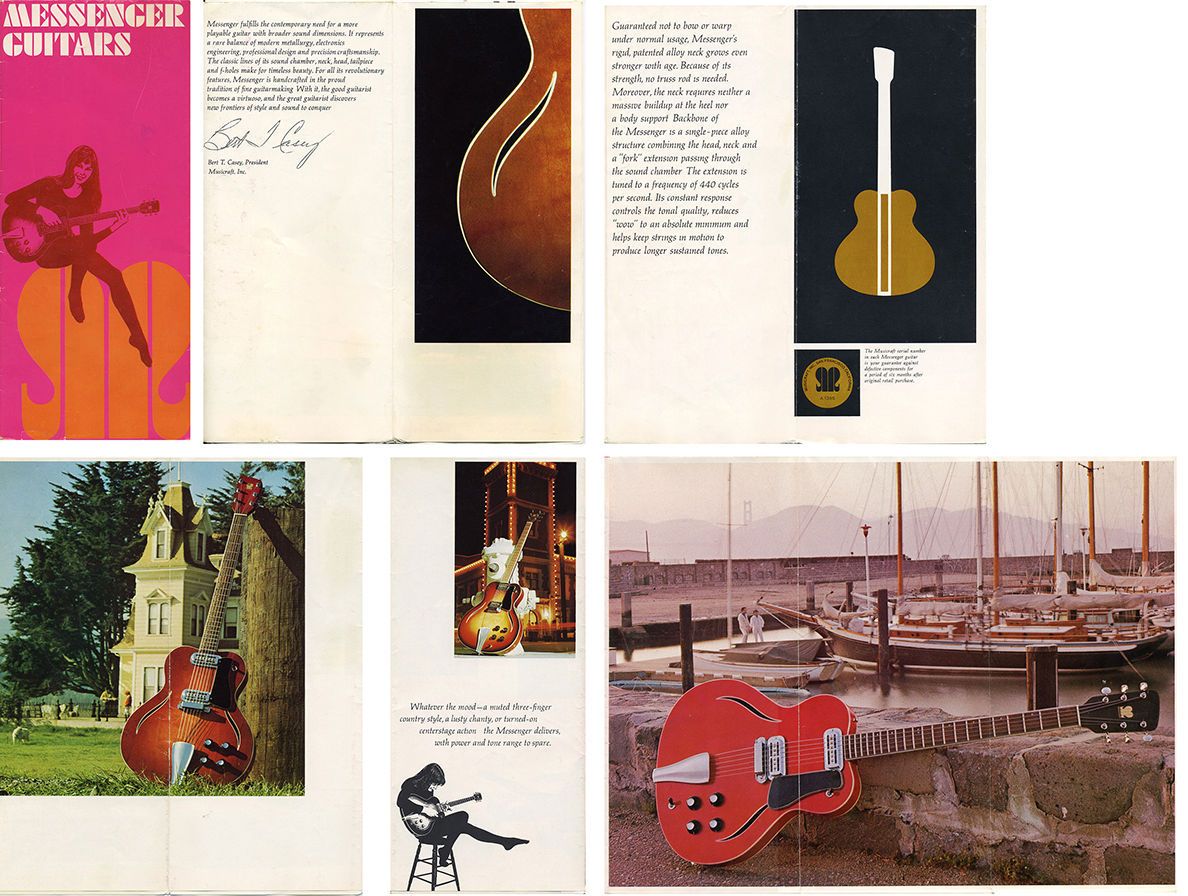
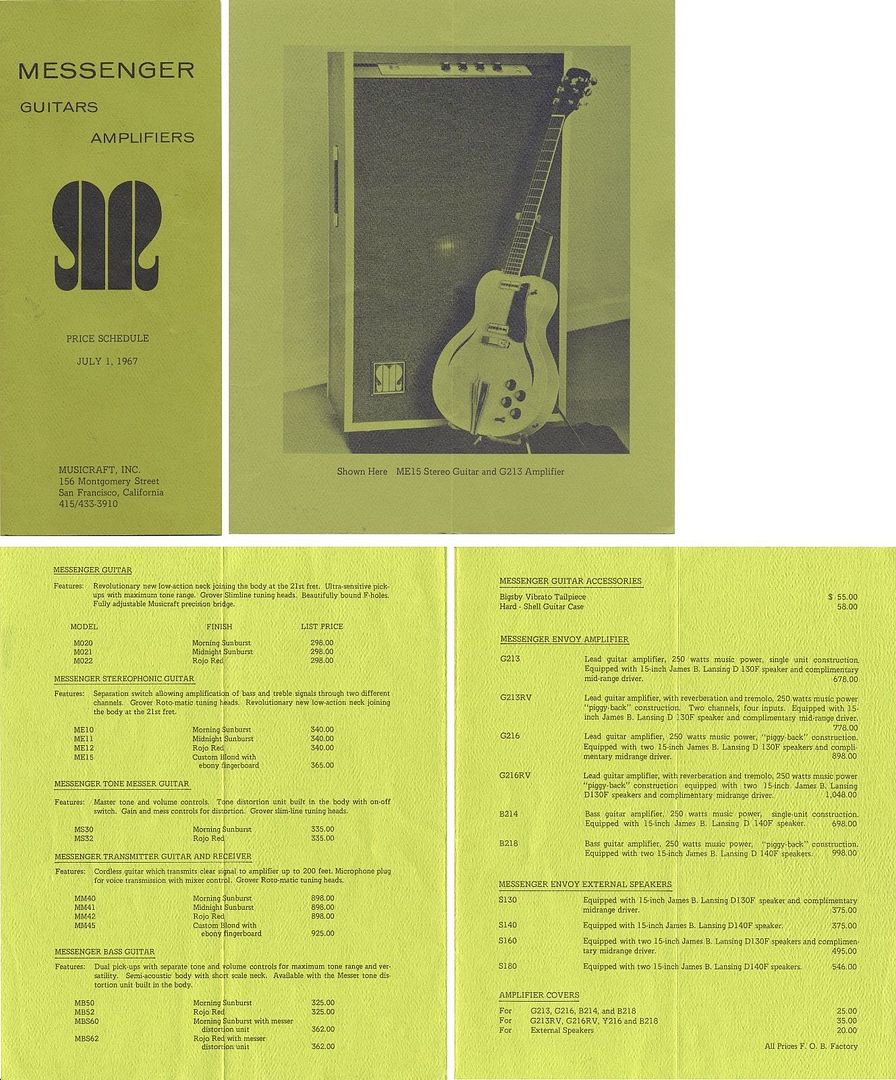
That word you couldn't make out is (I'm pretty sure) "wow," in the audio sense: “slow pitch fluctuation in sound reproduction, perceptible in long notes," as per Oxford American Dictionary
ReplyDeleteI've played a Messenger 6-string before, long time ago (25-30 years?). I remember it was quite neck heavy, and the neck was way too thin, and cold. Couldn't for the life of me figure why Mark Farner would have played one.
ReplyDeleteInteresting to note those (6-string) pickups though, I had forgotten about them. I have three of those exact model Rowe pickups.
Just this morning I was trying to decide which project to take up next (having just finished a total rebuild of a Garnet tube PA head into a killer guitar amp). Gotta be an omen.... Yep, the next project will be an original design guitar with those pickups. Thanks for the inspiration!
To me it looks like it's a 6 string converted to bass.
ReplyDelete